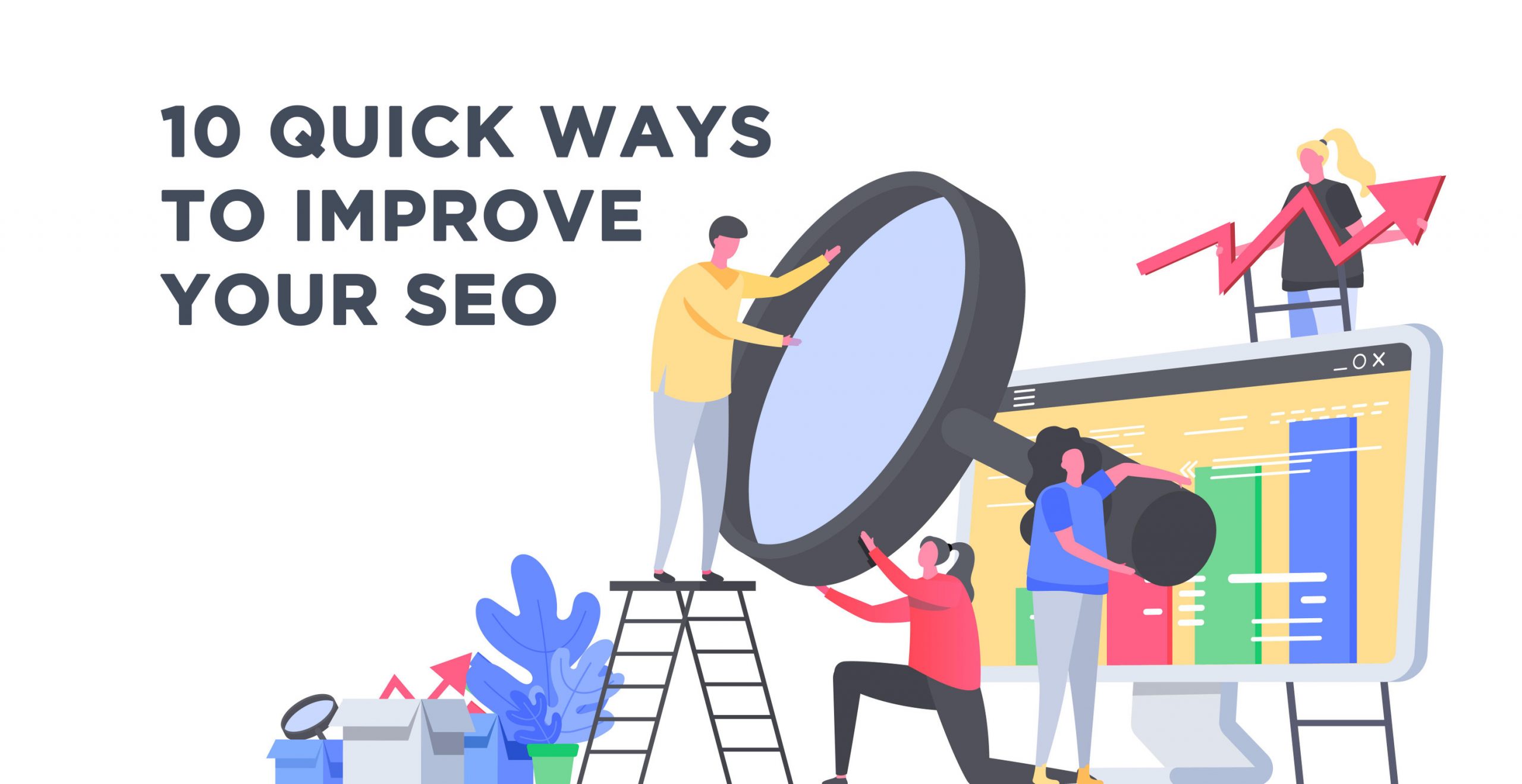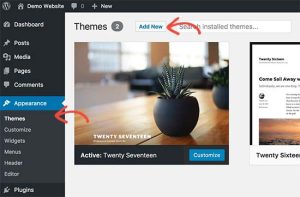If you’re looking to improve your website’s SEO, you’ve come to the right place. In this article, we’ll share 10 easy ways to improve your website’s SEO. From optimising your titles and descriptions to using keyword-rich content, there are plenty of simple ways to make your site more search engine friendly. So without further ado, let’s get started!
Why SEO is important
SEO is important for a number of reasons. First, it can help you reach a wider audience. By optimising your website for search engines, you can increase your chances of appearing in the top results for relevant keywords. You can contact Pak SEOs to help attract more visitors to your site and improve your chances of converting them into customers or clients.
Second, SEO can help to build trust and credibility with potential customers. If your website appears in the top results for relevant searches, this can send a signal to users that your site is reputable and trustworthy. This can give you a competitive edge and help you win over potential customers who may be considering doing business with other companies in your industry.
Third, SEO can improve the user experience on your website. If your website is easy to find and navigate, users are more likely to stay on your site longer and visit more pages.
Section 1: Website design
Your website’s design is important for two reasons: first, because it affects your website’s search engine optimization (SEO), and second, because it affects the user experience (UX) of your site visitors.
Here are some easy ways to improve your website’s design for both SEO and UX:
- Use typography that is easy to read.
- Stick to a limited colour palette.
- Use plenty of white space.
- Use imagery sparingly and make sure it is relevant.
- Optimise your website for mobile devices.
- Keep your navigation simple and intuitive.
- Use calls-to-action (CTAs) to guide users through your website.
- Make sure your website loads quickly.
- Improve your website’s internal search function.
Section 2: Website content
Your website’s content is key to improving its SEO. Here are ways to improve your website’s content and thus its SEO:
- Make sure your website’s content is relevant to your target audience. Write content that appeals to them and provides value.By optimising your website content for specific keywords, you can draw more targeted traffic to your site and increase your chances of conversion. SEO for cosmetic surgeons is to maintain a strong online presence in order to attract new patients.
- Use keyword-rich titles and descriptions to help improve your website’s search engine ranking.
- Structure your website’s content in an easily navigable way. Use clear headings, subheadings, and bullet points to break up text and make it easy to scan.
- Use images, infographics, and videos to break up text and add visual interest. Optimise all media for fast loading times.
- Take advantage of social media platforms by sharing links to your website’s content. Use engaging headlines and descriptions to encourage clicks.
Section 3: Website structure
It’s no secret that SEO is an important factor in website success. However, many people overlook the role that website structure plays in SEO. Here are a few easy ways to improve your website’s SEO by paying attention to its structure:
- Use keyword-rich titles and descriptions.
Make sure your website pages have unique, descriptive titles that include the keywords you want to rank for. Likewise, your meta descriptions should be interesting and give potential visitors a good sense of what your page is about.
- Use clean, well-organised code.
Your website’s code should be clean and well-organised. This makes it easier for search engines to crawl and index your site properly. Plus, a well-coded site tends to load faster, which is also good for SEO.
- Create a logical link structure. Your website’s internal linking structure should make sense and be easy for visitors to follow. This is another factor that search engines use when ranking your website.
- Include your target keywords in image captions and alt text.
Section 4: Keywords
When it comes to SEO, keywords are everything. They’re what search engines use to index and rank your website, and they’re what customers use to find your site via search.
To make sure your site is keyword-optimised, do the following:
- Perform keyword research. This will give you an idea of which keywords are most popular and most relevant to your business.
- Use those keywords throughout your site, including in the title tag, meta tags, header tags, and body copy.
- Monitor your keyword rankings periodically to ensure that you’re still ranking high for those terms.
- Adjust your keywords as needed based on changes in search behavior or your business goals.
Section 5: Backlinks
One of the most important things you can do to improve your website’s SEO is to create backlinks. Backlinks are links from other websites that point to your website. They show search engines that your site is popular and relevant. The more backlinks you have, the higher your site will rank in search results.
There are a few ways to create backlinks. One is to submit your site to directories. This can be time-consuming, but it’s a good way to get high-quality backlinks. Another way is to post articles on article directories with links back to your site. You can also leave comments on other people’s blogs with links back to your site.
Creating backlinks can be a time-consuming process, but it’s worth it if you want to improve your website’s SEO.
Section 6 : Social media
As a business owner, you know that social media is a powerful tool to reach new customers. But what you may not know is that social media can also help improve your website’s SEO. That’s right, by using social media to drive traffic to your website, you can actually improve your site’s ranking in search engines.
Section 7: Hosting
As your website grows, you may need to consider upgrading your hosting plan. A good host will offer unlimited storage space and bandwidth, as well as 24/7 customer support. Look for a host that offers a 99.9% uptime guarantee, so your site is always up and running.
Your choice of hosting can also affect your SEO. If you choose a shared server, your site may be penalised by Google if another site on the same server is engaging in shady SEO practices. A dedicated server will give you more control over your website’s security and speed, both of which are important for SEO.
If you’re not sure which type of hosting is right for you, reach out to a web development professional who can help you make the best decision for your website’s needs.
Section 8 : Site speed
Slow loading websites are a pain for users and can hurt your website’s ranking in search results. Google’s PageSpeed Insights tool measures how well a page performs on mobile and desktop devices and provides suggestions on how to improve performance.
There are many factors that contribute to slow loading times, but some common culprits are large images, unoptimized code, and excessive plugins.
Section 9: On-page SEO
On-page SEO is the process of optimising a website for Google search with the goal of earning higher web traffic levels and improving the visibility of the site.
There are many factors that go into on-page optimization, but some of the most important include:
- Title tags: The title tag is perhaps the most important on-page element for SEO. The title tells Google what your page is about, and it appears in SERPs as the clickable link to your website. Make sure to use relevant keywords in your title tags so that your pages can rank higher in search results.
- Meta descriptions: The meta description is the brief text that appears below your title tag in SERPs. This text gives searchers more information about your page and can help convince them to click through to your site.
Section 10: Off-page SEO
There are a number of things you can do to improve your website’s SEO without having to directly edit the content on your pages. Here are easy off-page SEO techniques you can try:
- Get listed in online directories.
- Make sure your website is linked to from your social media profiles.
- Claim your listing in Google My Business.
- Optimise your website for local search.
- Submit your site to relevant industry directories and lists.
- Get involved in online communities related to your industry or niche.
- Write guest blog posts on other websites related to your industry or niche.
- Give presentations or hold webinars about topics related to your business or website.
Conclusion
SEO is important for any website that wants to rank high in search engine results pages. By optimising your site for specific keywords, you can improve your chances of ranking higher for those terms. Additionally, SEO can help to draw more organic traffic to your site, which can lead to increased leads and sales.
Overall, SEO is an essential part of running a successful website. By taking the time to improve your site’s SEO, you can ensure that your site will be more visible to potential customers and better able to convert leads into sales.









Thanks for sharing. I read many of your blog posts, cool, your blog is very good.